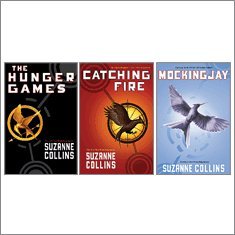 XVI, by Julia Karr
XVI, by Julia Karr
Rating: 5 out of 5
(summary from GoodReads) Nina Oberon’s life is pretty normal: she hangs out with her best friend, Sandy, and their crew, goes to school, plays with her little sister, Dee. But Nina is 15. And like all girls she’ll receive a Governing Council-ordered tattoo on her 16th birthday. XVI. Those three letters will be branded on her wrist, announcing to all the world—even the most predatory of men—that she is ready for sex. Considered easy prey by some, portrayed by the Media as sluts who ask for attacks, becoming a “sex-teen” is Nina’s worst fear. That is, until right before her birthday, when Nina’s mom is brutally attacked. With her dying breaths, she reveals to Nina a shocking truth about her past—one that destroys everything Nina thought she knew. Now, alone but for her sister, Nina must try to discover who she really is, all the while staying one step ahead of her mother’s killer.
Let me start by saying that I LOVED this book. I loved it so much I couldn’t put it down. That’s right. Instead of enjoying the comfortable, fully reclinable, first class seat I got upgraded to on my flight to Rome, I taped my eyelids open and devoured this book. And I didn’t even care that this meant I would have nothing else to read the entire trip or that I would start my trip half-asleep. Nothing mattered except finishing the book and finding out what was going to happen.
Karr has created a dystopian society that seems completely plausible. While some of the elements in Suzanne Collins’ world from the Hunger Games trilogy seemed a bit far-fetched, the sci-fi, futuristic, dystopian elements of Karr’s world seemed very likely. Children had tracking devices installed in them at birth; listening devices were used to hear conversations; society was split into tiers; and women were treated as goods, something that has never fully left our society and could very easily come back.
As a book for teens, I applaud Karr’s courage. Sex in YA books is controversial, especially when the main subject of the book is sex. But the way Karr explores this theme is thoughtful. She does not come out and say teenagers should be sexually active. In fact, Nina is horrified at the thought and the characters who are past 16 but have chosen abstinence are applauded. Karr seems to be encouraging more the necessity in thinking through your actions, rather than chiding or encouraging sexual behavior, an important lesson for teens.
Of course, the book is not just about sex. It is full of mystery, corruption, romance, and suspense. Karr creates captivating characters, including Sandy, Nina’s ignorant, but lovable, best friend. The reader cares for the characters and wants to see them come out on top, an element that is almost always necessary for a successful book. And when coupled with her impeccable world building, this really is a must read.
If you are overly sensitive to discussions of sex, this may not be the best book for you, but I challenge you to give it a shot anyway. And if you are not overly sensitive to sex in books, definitely give this a read. You won’t regret it.
P.S. This is a great crossover book too, meaning adults should not be ashamed to get caught reading it.


